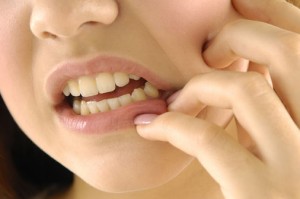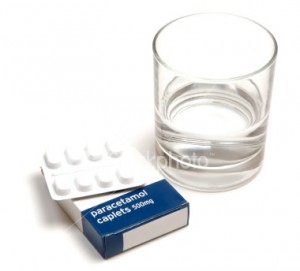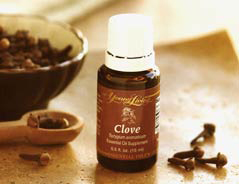Having severe pain from a toothache but no dentist in sight? Dental pains will not simply go away if you bear with it so try to make a dental appointment as soon as possible to alleviate the cause of the pain. However, what are you to do to ease a toothache for the meantime?
Causes of toothache
Diagnosis of a toothache is made almost entirely by the dentist. A person complaining of toothache is most likely to be suffering from one of the following conditions:
- Acute pulpitis
- Acute apical periodontitis
- Acute apical abscess
- Acute periodontal abscess
- Chronic pulpitis
- Chronic apical periodontitis (apical granuloma)
- Exposed sensitive dentine
- Food packing
- Cracked cusps
The list of conditions is in approximate order of the severity of pain and also the frequency in which pain is the presenting symptom, although there are considerable individual variations in this.
There are also disorders in the face that may be confused with toothache:
- Trigeminal neuralgia
- Trigeminal neuropathy (due to trauma or tumor invasion)
- Atypical facial pain and atypical odontalgia (tooth pain)
- Cluster headache
- Acute and chronic maxillary sinusitis
- Myofascial pain of masticatory muscles
How to ease a toothache until your dentist appointment
Most dental pain is inflammatory in origin hence most responsive to drugs with an anti-inflammatory component, for example aspirin and the non-steroidal anti-inflammatory drugs (NSAIDs). The following drugs are available from pharmacies.
- Aspirin is used in mild to moderate pain. However usage should be avoided in those with aspirin allergy, bleeding problem, stomach ulcers and anticoagulant therapy. Aspirin should NOT be used in children under 12 years of age for risk of Reye syndrome. Dosage should be around 600 to 900 milligram 4 hourly*.
- Ibuprofen is popularly used for mild to moderate toothache pain relief. Risks and side-effects are similar to those of aspirin but less irritant to the gut. Dosage should be around 400 to 600 milligram 8 hourly*.
- Paracetamol has a similar pain-killing efficacy to aspirin but has no anti-inflammatory action. It does not cause gastric problems or interfere with bleeding times. Overdosage can lead to liver failure. Dosage should be around 500 to 1000 milligram 6 hourly with a maximum dosage of 4 grams per 24 hours in adults*.
*the dosages given above are for adults only. Drug dosage for children are less than adult dosages therefore consult with your pharmacist before administering any drugs to children.
Toothache home remedies
Here are a few remedies for toothache that use natural ingredients:
- Salt – Rinsing your mouth with salt water or saline solution mouthwash by adding a pinch of salt in lukewarm water and gargling with it.
- Clove oil – Placing a drop of clove oil directly on the crown of the affected tooth and dab another drop on the gum around the tooth to ease toothache pain until you can see your dentist. You can buy over-the-counter preparations of clove oil and the oil is placed directly on tooth, not ingested.
- Garlic – Like clove, this common kitchen remedy is a powerful bacteria-fighter. Simply bruise a clove of garlic and hold it next to the infected tooth. Exercise caution when garlic is used for it is quite strong and can cause skin irritation.
- Turmeric– Used in many natural tooth products, this bright yellow spice has anti-bacteria and anti-inflammatory properties. It also stimulates blood circulation, which helps bring more immune cells to the site of infection. You can mix a teaspoon of turmeric with enough water to make a paste and dab it on the sore tooth.
- Tea Tree Oil – Rinse teeth with gargle mixture by adding 3-5 drops of tea tree oil to a mouthwash. A small amount of aloe vera can be rubbed directly onto infected tooth. It is wise to note down that you should never swallow tea tree oil and you should rinse your mouth with fresh water thoroughly to make sure no tea tree oil residue is left in the mouth as ingestion may lead to side effects.
- Ginger or Red pepper– A compress made with these hot spices seems to help ease toothache pain. They act as a counterirritant, meaning the surface irritation of the spices helps to diminish the deeper toothache pain. In addition, red pepper contains salicylates, aspirin-like chemicals that can provide pain relief. To make a compress for your tooth, mix the powered spice in enough water to form a gooey paste. Then dip in a small cotton ball and wring it out. Apply the cotton directly to tooth without letting it touch your gum.
It is important to note that all toothache remedies are only meant as temporary toothache relief until proper medical or dental treatment is given.


